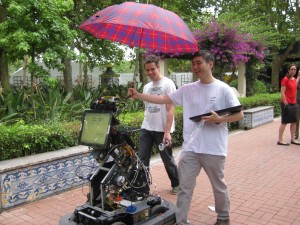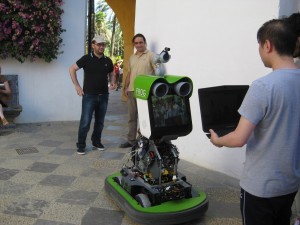One small FROG in a wide public space …
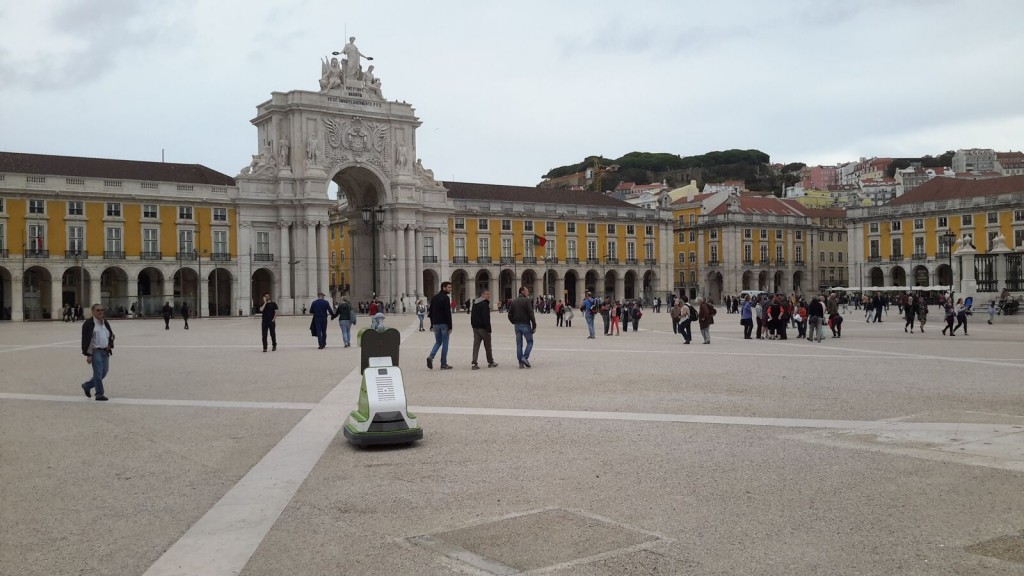
There was something important happening there …
Lots of important people and lots of attention …
There were visitors to guide and give information to …
But luckily there was a friend close by as well!
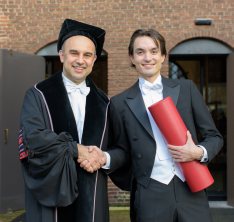
In the FROG project, partner UVA, that is, the University of Amsterdam, is working on people detection, tracking and body pose recognition. Dariu Gavrila is the team leader.
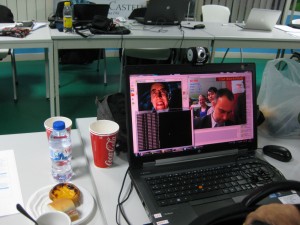
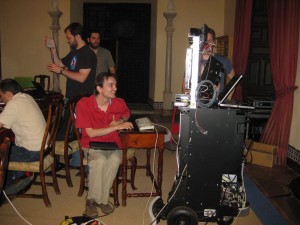
On Monday 13 October 2014 the Dutch Night of Science and Society took place (Avond van Wetenschap en Maatschappij; www.avondwenm.nl) in the Ridderzaal in the Hague.
During this yearly event scientists and non-scientists from different fields discussed topics with each other on the theme Blueprint for the future – the science of today is the world of tomorrow. One of the topics was the introduction of social robots. Prof. Peter-Paul Verbeek introduced the topic of social robots in society to the table and Daphne Karreman supported the discussions with examples taken from the FROG project.
A short video of the European Researchers’ Night in Seville can be seen at:
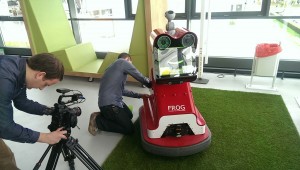
FROG has appeared on tweakers.net a Dutch website featuring news and information about hardware, software and the Internet. Members of the UT team explained and demonstrated the various capabilities of the robot. You can find the clip (which is in Dutch) here: FROG on tweakers.net
FROG on the first Spanish National Channel-TvE1 (Regional difussion)
FROG on the first Andalusian Public Channel-Canal Sur
Today FROG is the centre of attention at the Royal Alcázar in Seville!
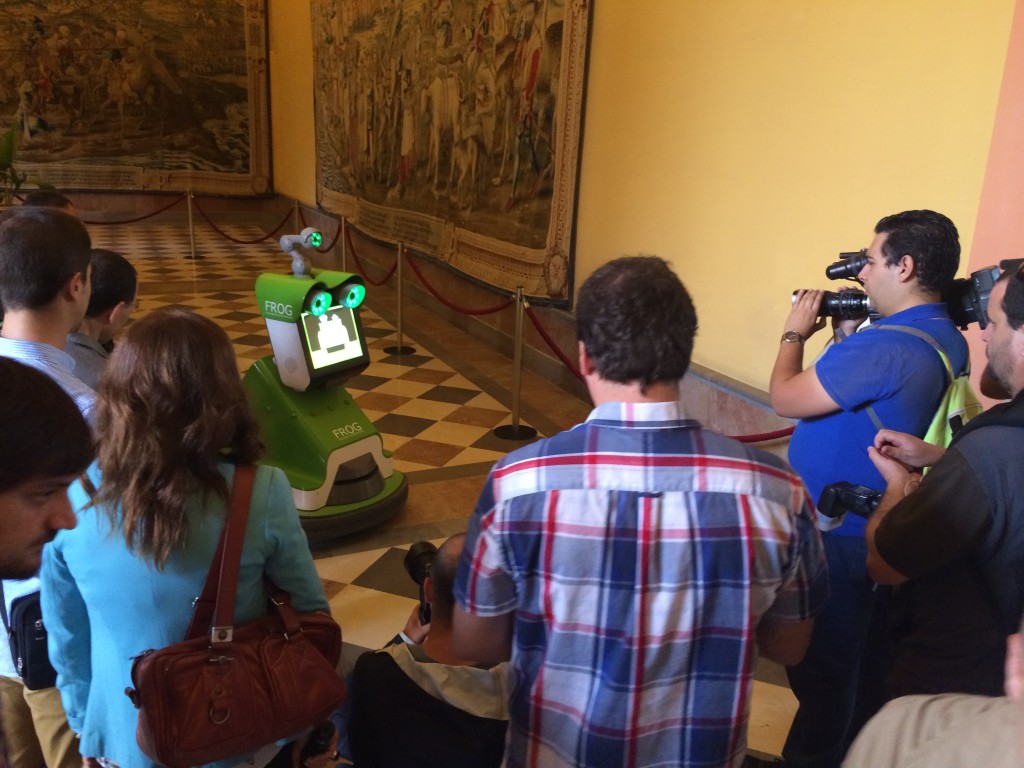
All camera’s and microphones were turned on FROG…
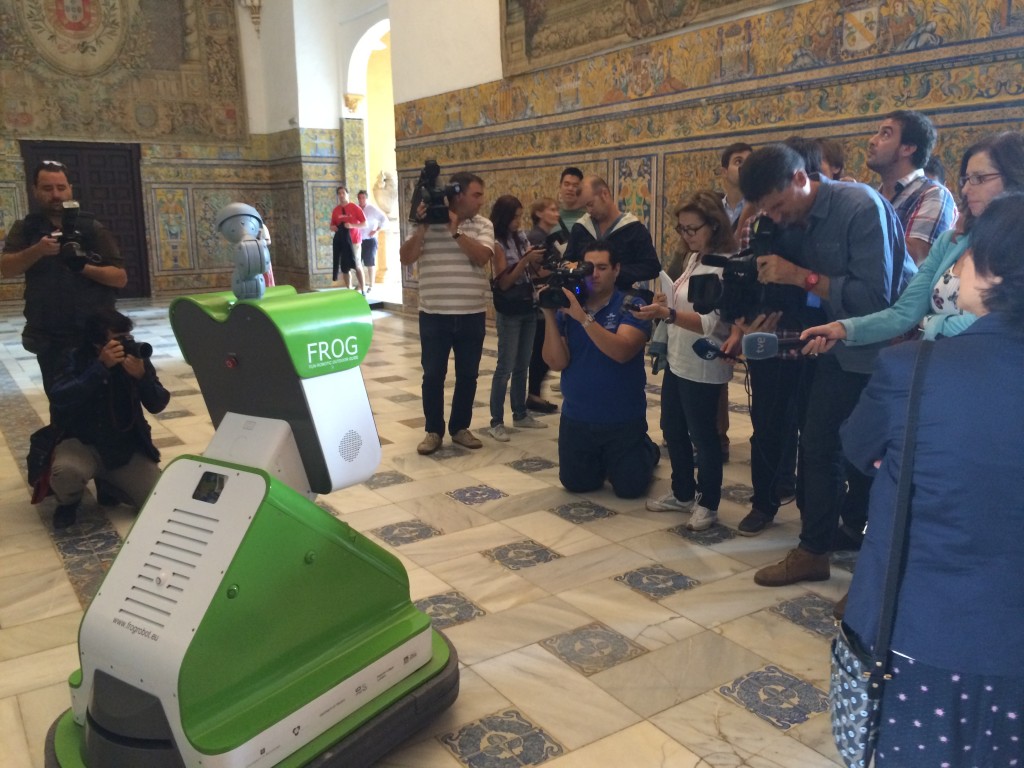
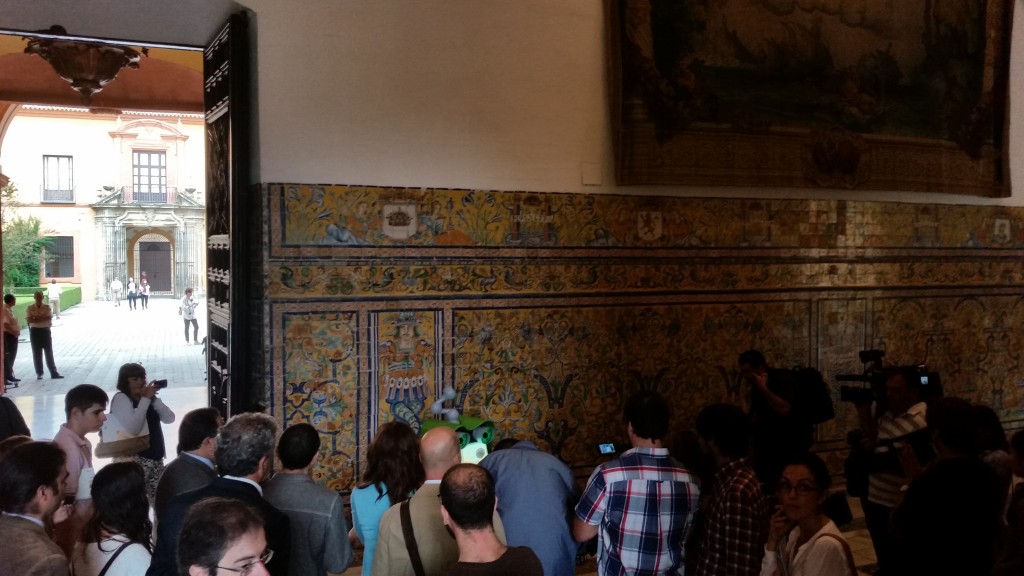
The event was started with short presentations by Vicente C. Guzmán Fluja the Rector of Universidad Pablo de Olavide in Seville, and FROG’s own Luis Merino Cabañas also from UPO, and Vanessa Evers, coordinator of this EU project representing the University of Amsterdam.
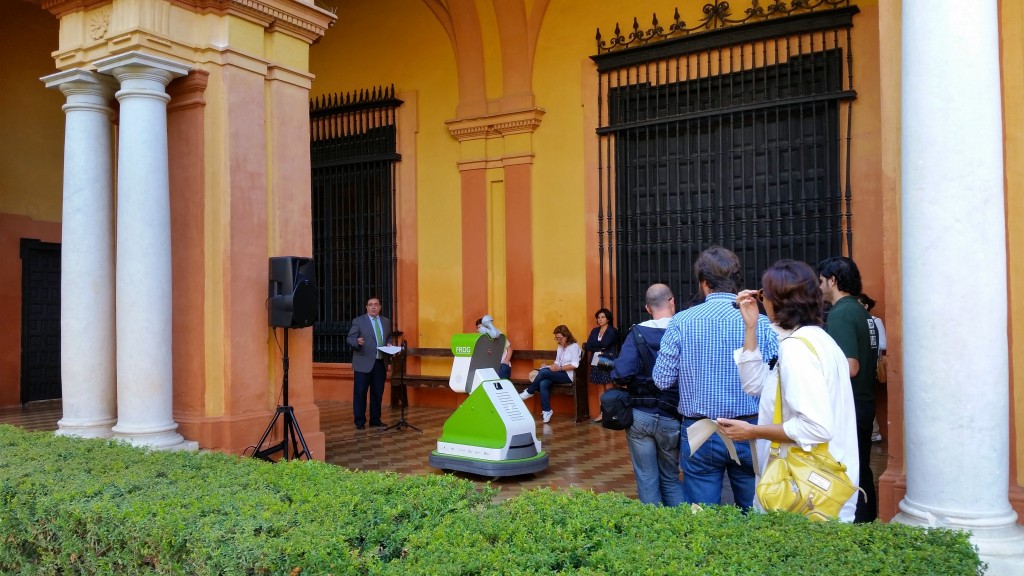
FROG then took everyone on a short tour of the Alcázar and demonstrated his capabilities. Journalists from all media were in the party, both local and national!
Back in the on-site lab, Luis Merino and Fernando Caballero were interviewed for TV and radio.
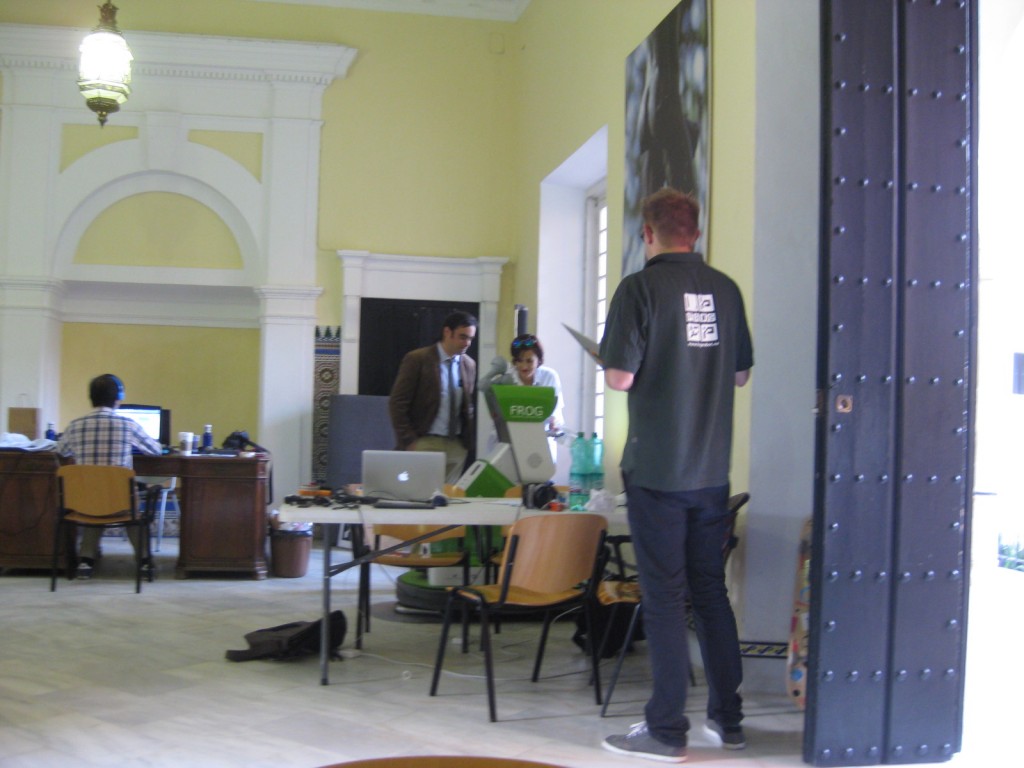
This afternoon there will be a workshop for a small group of official tour guides from the Royal Alcázar and one from the Lisbon Zoo.
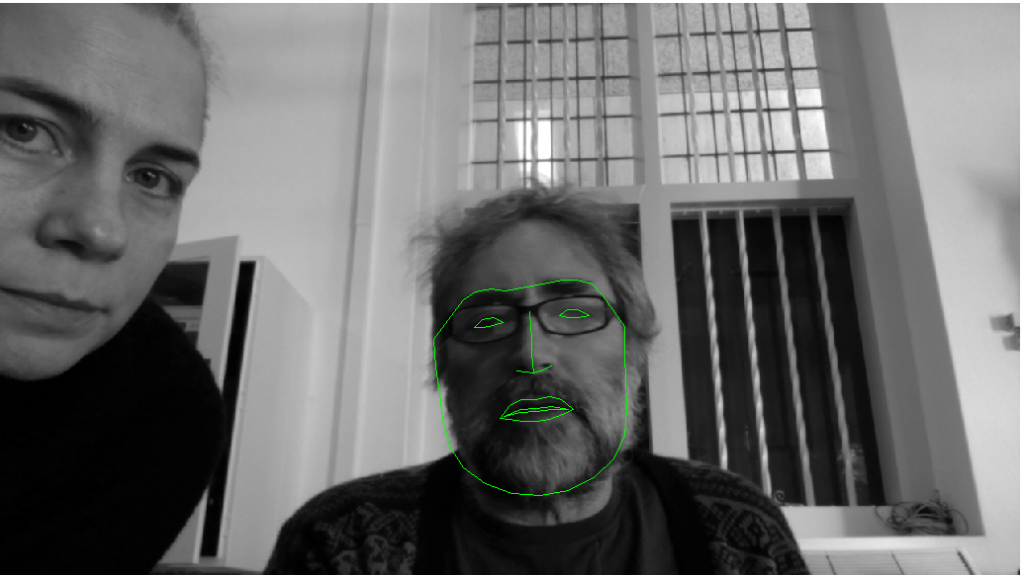
Maja Pantic leads the Intelligent Behaviour Understanding Group (iBUG) at Imperial College in London.
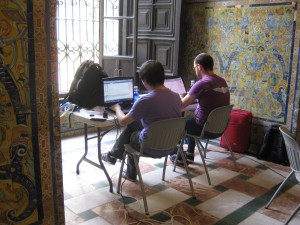
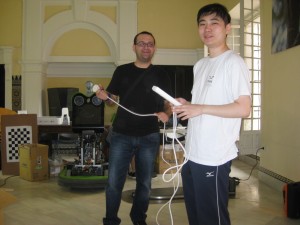
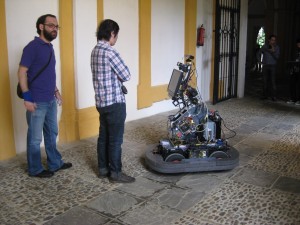
Ioannis Marras is a researcher from the Intelligent Behaviour Understanding Group (iBUG) at Imperial College, London. His research interests include image/video processing, computer vision and pattern recognition. During his work, he has developed multiple computer vision techniques for 2D/3D face tracking and 2D/3D face recognition in the wild.
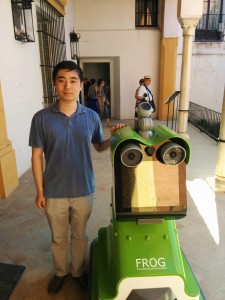
Jie Shen is a researcher from the Intelligent Behaviour Understanding Group (iBUG) at Imperial College, London. His research interests include software engineering, human-robot interaction, and affect-sensitive human-computer interfaces. During his work, he has developed the HCI^2 Framework (http://ibug.doc.ic.ac.uk/resources/hci2-framework/), which is a software integration framework for human-computer interaction systems, currently being used in multiple research projects.
Jie Shen defended his PhD thesis, titled ‘Realising Affect-Sensitive Multimodal Human-Computer Interface: Hardware and Software Infrastructure‘, in May, 2014.
